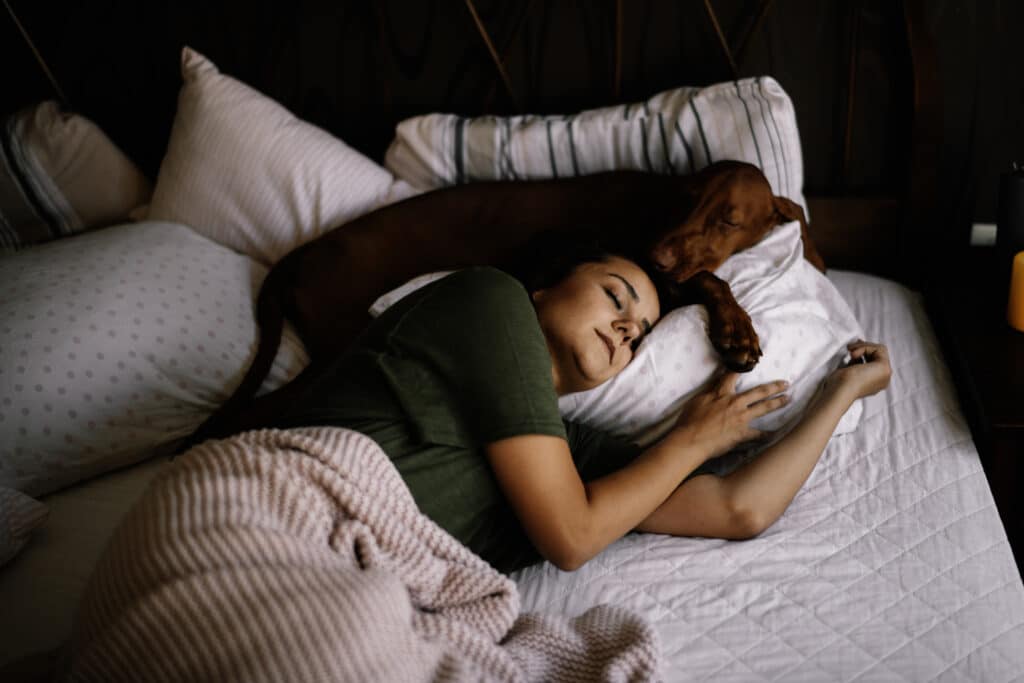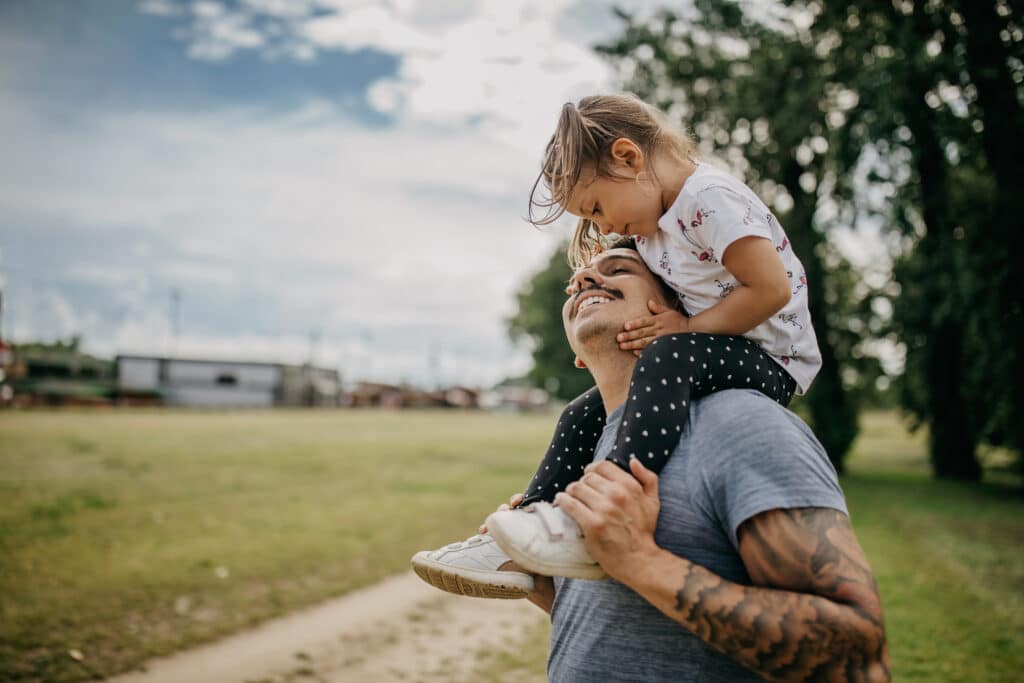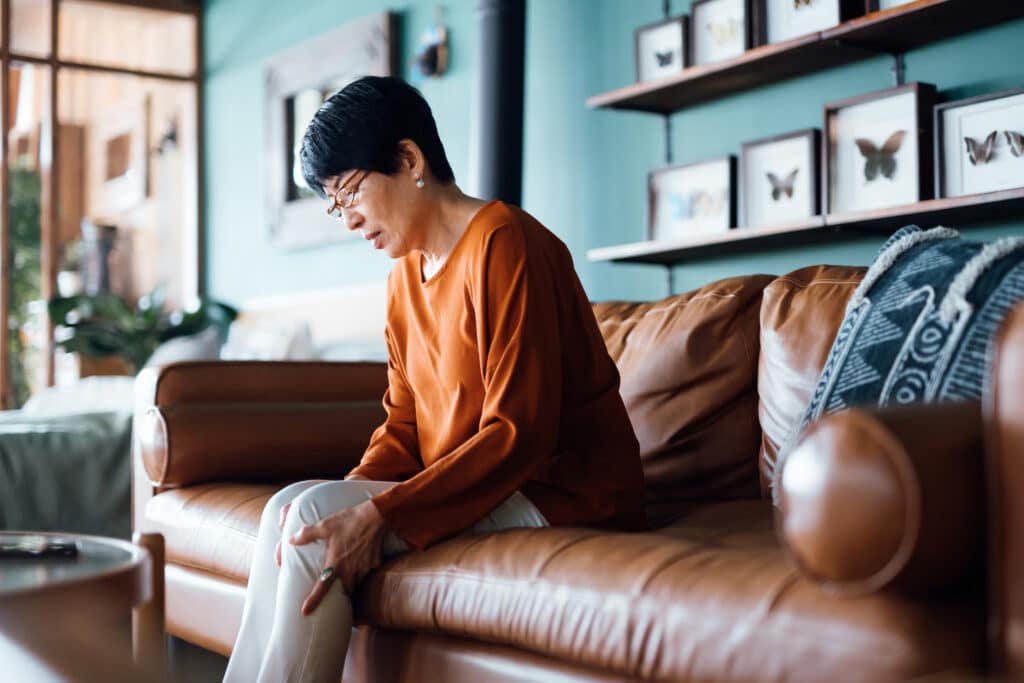Nightmares. Sleepwalking or talking. Lying awake with racing thoughts. Sleep problems can be misery-inducing.
For people with PTSD, sleep is among the most common challenges. Trouble sleeping plagues more than 90% of people living with PTSD. And not sleeping well can make it even harder to deal with symptoms during the day.
When it comes to PTSD, the relationship with sleep seems to go both ways. Poor sleep is a risk factor for developing symptoms after trauma. And once you have the condition, poor sleep can worsen the condition.
So, what can you do about it? Here are 6 things that can help:
- Create a calming space for sleep. This can involve as much or as little decorating effort as you like. What matters most is making it dark and quiet. Find a way to block out extra light, whether it’s with curtains, blinds, or a sleep mask. Add a fan or white noise machine to block out extra noise. (Many phone apps can also do this.)
- Stick to a schedule. Going to bed and waking up at roughly the same time every day helps your body to learn when it’s time for sleep. And don’t linger in the morning. Even if you didn’t sleep well, limiting time in bed to 7-9 hours may help you sleep the next night.
- Avoid food, drinks, and substances close to bedtime. You probably know that caffeine can keep you up. So can heavy meals too close to bedtime. And while alcohol can make you feel sleepy, it can cause sleep disruptions later in the night.
- Create a bedtime routine. Babies and kids aren’t the only ones who benefit from routines. Doing the same activity before bedtime every night can help to signal to your brain and body that it’s time for rest. Choose something that helps you relax, like working on a puzzle or reading a book. Steer clear of stressors, like news or social media.
- Consider screening for obstructive sleep apnea (OSA). OSA is more common among people with PTSD, and it can worsen symptoms. The good news is that getting treatment for OSA may help with PTSD as well.
- Explore treatment for PTSD symptoms. Even if you’ve tried other treatments in the past, if you are still bothered by symptoms, don’t give up. A medication-free treatment like Freespira could help. Freespira works by teaching a way of breathing that patients can turn to day or night to help calm their minds and body. The treatment itself only takes 28 days, but many patients continue to use it afterward as a natural sleep aid.
“Before Freespira, I would wake up gasping from nightmares,” one patient with PTSD shared. “After the first week of Freespira sessions, I started sleeping through without waking up. Now I can focus on my actual life happening instead of just spending my time debilitated by symptoms.”



